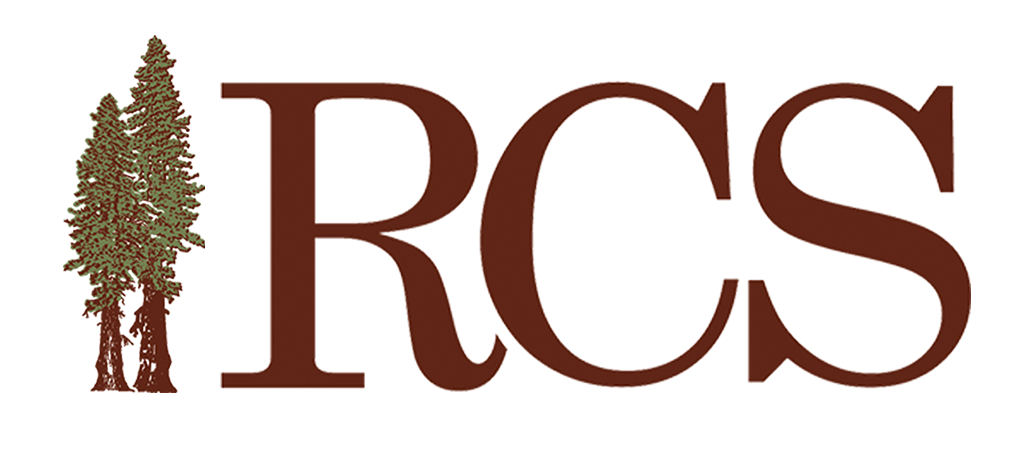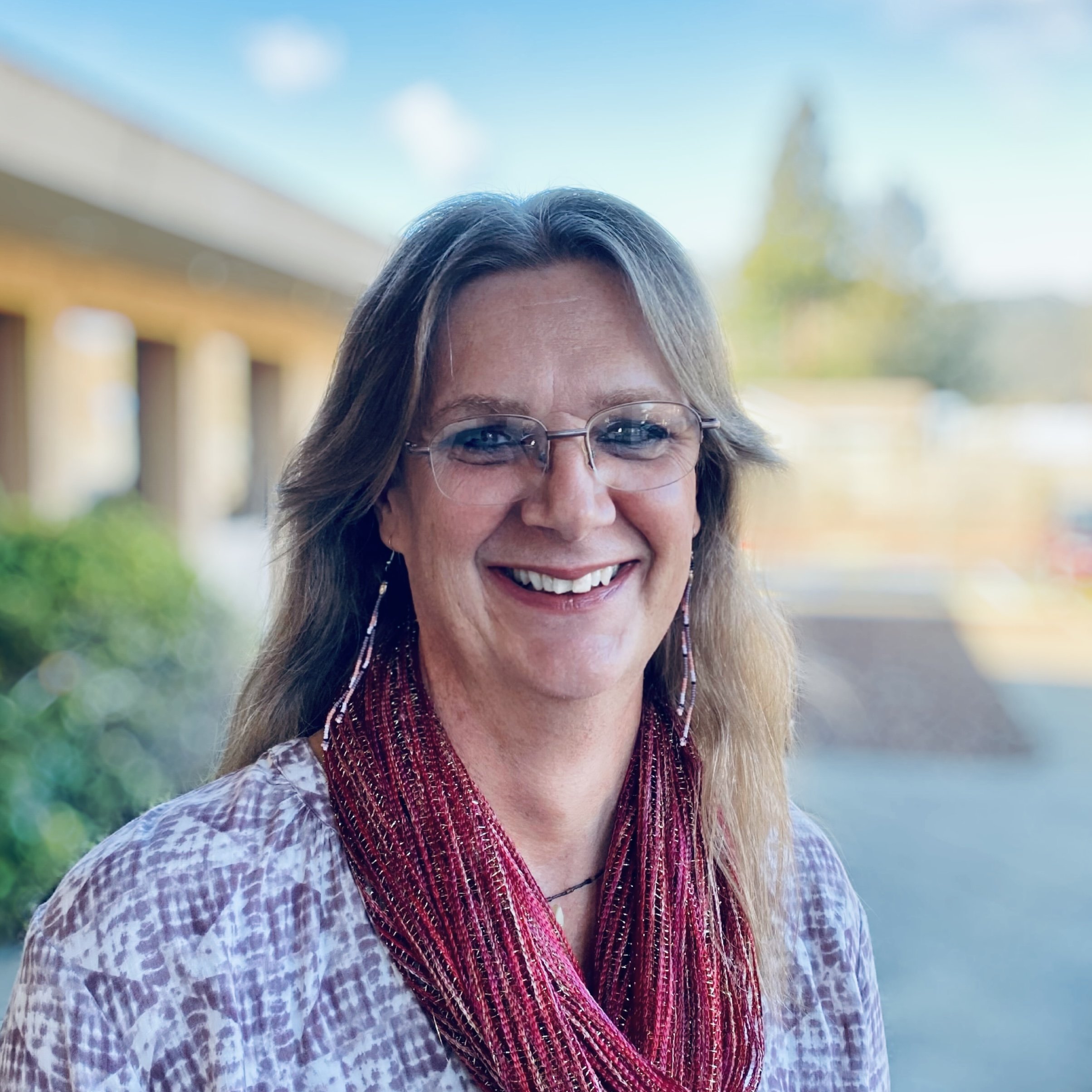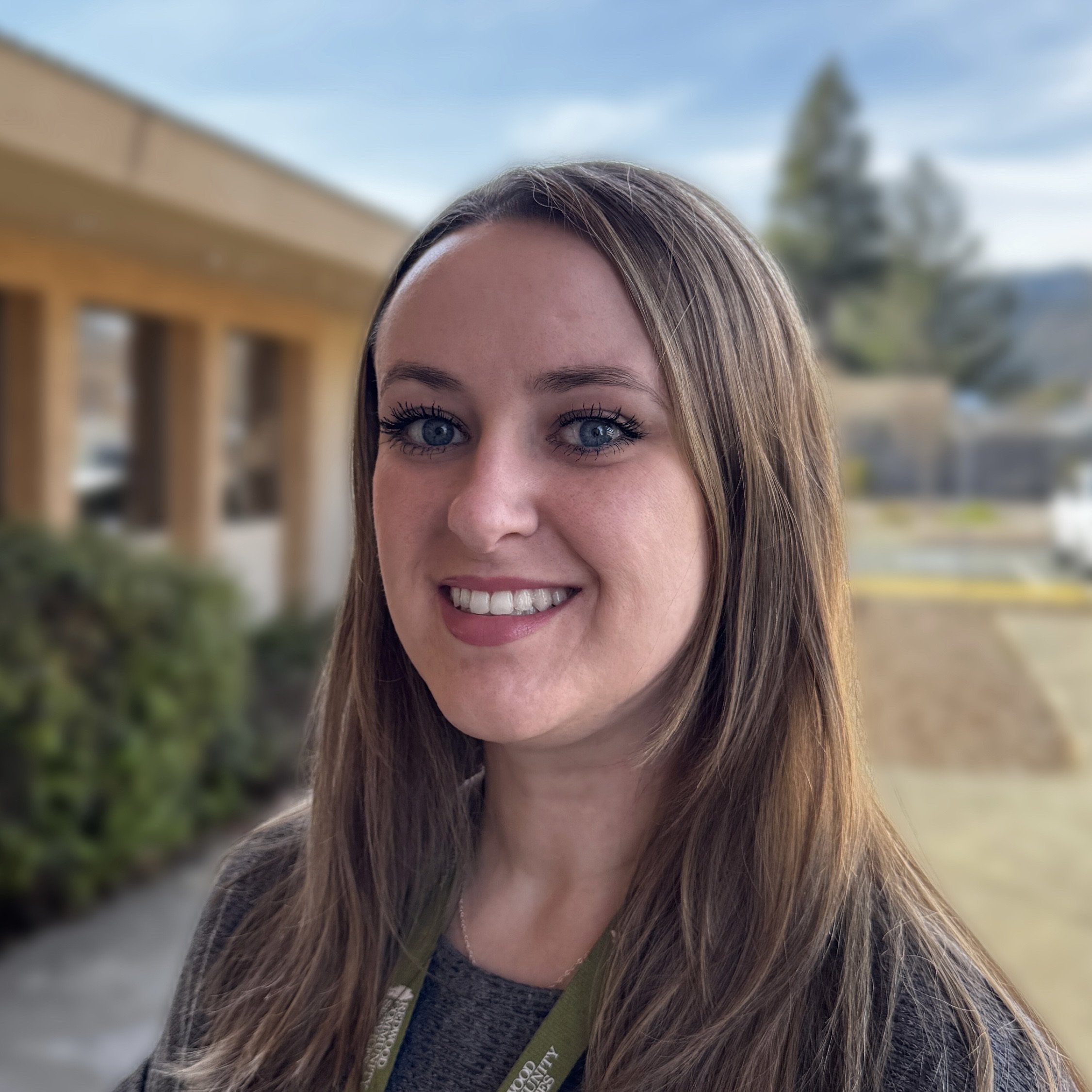Training Department
Our innovative learning model enables professionals to choose training and educational experiences that work for their schedule, learning style, and career path—all at no cost to learners. Our training opportunities include live, virtual events, self-paced courses, and in-person experiences organized around seven domains: evidence-based/evidence-informed service delivery, direct service/behavioral health delivery skills, trauma-informed systems, harm-reduction and substance use principles, client safety practices and techniques, foster care & adoption system, and management & leadership development.
Mendocino | Lake | Humboldt
Meet Our Trainers
Tiffany Tucker
Trainer
Read Bio >
Schuyler Marcier
Trainer
Read Bio >
Kate Reingold
Training Supervisor
Read Bio >
Christine Hawley
Training Manager
Read Bio >
View Our Training Calendar
Questions/Comments
Call (707) 467-2010
Email trainingdept@redwoodcommunityservices.org
Administration Office
631 S. Orchard Ave
Ukiah, CA 95482
“Wisdom…. comes not from age, but from education and learning.”
Current Trainings Available
-
Based on the EBP Collaborative Problem Solving model, this training helps us shift our view to understanding that challenging behaviors are a result of lagging social and emotional skills, rather than bad choices on the part of the child. The method involves assessment, planning and prioritizing, and then working collaboratively with the child to brainstorm win-win solutions.
-
Created by an RCS Licensed Clinician, this training helps us understand how to look underneath challenging behaviors to the reasons for the behaviors. Including an overview of the 3 stages of the General Adaptation Syndrome, a look at attachment theory, and understanding trauma can help us see these behaviors in a new light, and design more effective interventions for them.
-
Based on the EBP Professional Assault Crisis Training (Pro-ACT), this training takes some of the most effective and important principles from the 16-hour curriculum and distills it down to 3 hours. Attendees will learn about their role in reducing client escalation through assertive communication, having an effective self-control plan, understanding the level of danger and the appropriate response, and the crisis communication model.
-
Based on trainings and book from Compassion Fatigue Specialist Beverly Kyer, this training seeks to train attendees in the risks of Compassion Fatigue & Vicarious Trauma, and its prevalence among helping professionals. The last half of the training is devoted to learning about and practicing body-based wellness skills such as grounding, breathing, EFT, resourcing, and others.
-
Created by an RCS Licensed Clinician, this training explores the impact of childhood trauma on child behavior and mental health. The material includes information about signs and symptoms of PTSD in children, and how parents and caregivers can address it, as well as tips and strategies for remaining calm to help calm a traumatized child.
-
This training, covers some of the dark history of Native Americans both in the United States as a whole, and in our local area. The training teaches about Native American cultures, specifically local tribes, as well as some of the problems and challenges faced by local tribal members. The training also covers the Indian Child Welfare Act (ICWA), as well as tips and strategies for foster parents with Native youth in their homes.
-
Created by an RCS Licensed Clinician, this training focuses on attachment theory, how a disrupted or damaged attachment can affect a child’s development and physical & mental health. It also covers the effects of stress and trauma on a child’s body and brain.
-
QPR is an Evidence Based Practice that equips anyone to recognize the signs of a suicidal crisis in a loved one, and intervene using the three clear steps of Question, Persuade, Refer.
-
This training looks at a child’s sensory system including not only the 5 traditional senses, but two others as well (vestibular & proprioception) and the impact of trauma on the sensory system, as well as other factors that might lead to sensory differences, such as sensory processing disorder. The last third of the training is full of ideas for how to better integrate sensory play into a child’s life, school, and therapeutic services.
-
Created by an RCS Licensed Clinician, this training goes over the science of stress and how it impacts the body and mind. Attendees will learn about the General Adaptation Syndrome (Fight/Flight Response), and the many ways that long-term stress damages our physical and mental health.
-
This training covers the important and sobering topic of child sex trafficking. Attendees will learn the scope of the problem, terms and vocabulary related to the topic, relevant federal and California laws, how children are lured into trafficking, signs that a child might be at risk or involved in sex trafficking, and resources for organizations that help with CSEC.
-
This training gives helping professionals an overview of some of the issues faced by LGBTQ Youth in the foster care system. Attendees will learn statistics, terms & vocabulary, and participate in several learning activities that help deepen understanding into this vulnerable population. Attendees will learn how to provide a safe and supportive environment for these youth, and practice being supportive through a series of role play scenarios.
-
This Mandated Reporter training covers the different types of child abuse, laws pertaining to mandated reporters, signs that a child is being abused, and the process for reporting.
-
This training, based on the EBP Seeking Safety, teaches attendees about the close relationship between trauma and substance use. It covers stigma and its role in hindering treatment, harm reduction, and a counseling plan for assisting clients who are struggling with PTSD and substance use.
-
Based off a training by Licensed Clinician and neurodiversity specialist Miranda Pool, this training teaches us about children with ADHD, Autism, and other neurodiverse challenges. It advocates for a broader understanding of what is “normal” and acceptable, and an empathy for neurodiverse individuals living in a neurotypical world. It also includes strategies for supporting neurodiverse children and broadening acceptance for all types of varying brains.
-
Created by an RCS Licensed Clinician, this training focuses on how a child’s brain is altered by trauma. It covers what behaviors you might expect to see from a traumatized child, steps to take to provide safety, and then healing to a child experiencing trauma, and strategies for teachers to create a safe environment, and teach coping strategies to traumatized children.
-
Motivational Interviewing is a counseling method that takes into account the difficulty of making positive life changes. It is a trauma-informed, client-centered, no-shame approach that helps the client resolve ambivalence and find their own path to positive change. This training teaches the stages of change, and the 4 core skills of Motivational Interviewing: Open-ended Questions, Affirmations, Reflective Listening, and Summaries.
-
Created by an RCS Licensed Clinician, this training teaches caregivers and resource parents how to navigate the often confusing world of educational and classroom supports. Attendees will learn what IEP’s and 504 plans are, how to qualify for them, how to set up an assessment, how to advocate for their child in the meetings, and what to expect going forward.
-
This training is based on the federal and California standards relating to the rights granted to foster youth, and how resource parents can meet prudent parent standards. Attendees will learn what the rights are, how a foster youth learns about them, how to protect them and advocate for your youth, and how to meet the federal and state requirements for prudent parent standard.
-
Foster youth deserve access to comprehensive sexual education just like every other youth, according to RCS policy, and according to the state of California. This training looks closer at that that might mean for foster parents, youth in care, and LGBTQ youth. It covers birth control, STI transmission, LGBTQ issues, and more.
-
Despite its misleading title, this training is not just for parents. It is a time-tested program created by Dr. Thomas Gordon in the 1960’s and it continues to be as relevant today as it was back then. This program asks the question, who owns this problem? Then teaches strategies to support and empower children to solve their own problems and work together to solve problems that involve both the parent and the child. It is a lengthy curriculum but it is worth every hour as caregivers learn how to foster strength, capability, and independent thinking in the children they serve.
-
This training is an overview of basic telecommunication skills to use when working with clients. It utilizes a Trauma Informed Approach to communication and provides concrete strategies to assist participants in identifying their client’s underlying needs. The training includes crisis communication methods for deescalating a frustrated client and how proper service etiquette can make clients feel safe, supported and hopeful, which will increase their likelihood of receiving services or continuing to receive services.
-
This training is an overview of the basics of trauma, its prevalence, signs and symptoms, the ACES Study, and how to respond to clients, coworkers, and yourself in a trauma informed way.
-
This training educates attendees about the nationwide Opioid Crisis, its history and current problems. Then attendees will learn how to administer the lifesaving opioid overdose reversal drug, Naloxone.
-
Shame and stigma have proven to be major barriers for people who need substance use treatment. One powerful way we can reduce substance use in our community is through educating professionals who work with clients with SUD to remove those barriers, and increase empathy for our struggling clients.
-
Attendees will obtain a 2-year certification in life-saving rescue CPR and use of an AED, as well as a variety of emergency first aid techniques for adults, children, and infants. Curriculum provided by the American Red Cross.
-
This training covers topics such as becoming comfortable with risk-taking, working collaboratively, and more. Through a combination of education, group activities, and discussion topics, teams will leave with a stronger relationship and greater team optimism.
-
Many parents feel concern about their child’s development. It can be difficult to know if your child’s behavior is reflective of typical development, or something to be concerned about. This training covers some of the famous psychological theories and theorists in the field of childhood development, such as Erik Erikson, Jean Piaget, and Sigmund Freud. Participants will learn typical developmental milestones for each age group from birth to 18 years of age. It will cover a few of the most common causes of developmental delays in childhood and how to recognize the signs, as well as the impact of trauma on child development.
-
A disproportionate number of children with disabilities are represented in the foster care system. This training will teach participants the different types of disabilities and the most common disabilities of each type with a focus on acceptance and inclusion. It also covers such necessary topics as why a disabled child might exhibit challenging behaviors and techniques for handling some of those behaviors. Lastly, the training will cover the most common types of assistive devices, lifting and transfer techniques, and additional resources for participants to find more information.
-
Elder and dependent adult abuse is at an epidemic level in the United States. In California, many professions are now legally designated as mandated reporters in an effort to help combat this increasing problem. This reporting responsibility is a serious one and can pose ethical dilemmas for mandated reporters. This training will address the signs to look for to identify elder abuse, the problems facing mandated reporters in elder abuse situations, the process for reporting, and help you to understand how, when, and where to report suspected abuse or neglect as well as what to expect after your report has been made.
-
Cultural Competency: Birthdays, Anniversaries and Holidays to include:
Foster youth face unique challenges and triggers around birthdays, anniversaries, and holidays. From culture and religious clashes with their resource family, to feeling guilty for enjoying time away from their biological family, and much more! This training helps resource families understand the challenges foster youth face and how to make birthdays, anniversaries, and holidays easier for youth in out-of-home care.
-
This training gives helping professionals and caregivers an overview of some of the issues faced by Transgender Youth in the foster care system. Attendees will learn about gender fluidity; gender affirming care and participate in several learning activities that help deepen understanding of this vulnerable population. Attendees will learn how to provide a safe and supportive environment for Transgender Youth, and practice being supportive through a series of role play scenarios.




